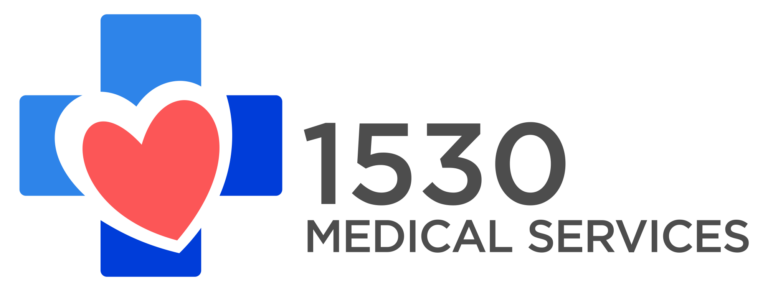Introduction
Imagine receiving top-notch medical care without ever leaving the comfort of your home. That’s the promise of skilled nursing care at home, an increasingly popular option for residents in Washington, DC. Whether you’re recovering from surgery or managing a chronic illness, understanding your options for home-based care is crucial.
What is Skilled Nursing Care?
Skilled nursing care with 1530 Medical Services refers to a high level of medical care that must be provided by trained and licensed nurses. This type of care includes services like wound care, administering medications, monitoring vital signs, and providing therapies. It’s distinct from basic home care, which might include help with daily activities like bathing and dressing, and focuses more on medical needs.
Benefits of Skilled Nursing Care at Home
One of the biggest advantages of skilled nursing care at home is personalized care. Nurses tailor their services to meet your specific health needs. Additionally, receiving care in your own home can enhance comfort and reduce stress, which is beneficial for recovery. Financially, it can be more cost-effective than long-term hospital stays or residential nursing facilities.
Types of Services Provided
Skilled nursing care at home encompasses a wide range of services:
- Medical Management: This includes medication administration, wound care, and monitoring of chronic conditions.
- Post-Surgical Care: Nurses assist with recovery after surgeries, ensuring proper healing and preventing complications.
- Chronic Disease Management: Skilled nurses help manage conditions like diabetes, heart disease, and COPD.
- Rehabilitation Services: Physical, occupational, and speech therapy can be provided at home.
- Palliative and Hospice Care: For those with serious illnesses, skilled nurses provide pain management and end-of-life care.
Qualifications of Skilled Nurses
Not all nurses can provide skilled nursing care. These professionals typically hold advanced degrees (like a Bachelor’s or Master’s in Nursing) and have specific certifications. Experience is crucial, often requiring several years in various medical settings. Specialized training in areas like geriatric care or palliative care may also be necessary.
How to Choose a Skilled Nursing Care Provider
Selecting the right provider involves thorough research. Start by seeking recommendations from healthcare professionals and reading online reviews. It’s important to interview potential providers to understand their qualifications, experience, and approach to care. Always check their credentials and ensure they have the necessary licenses.
Cost and Insurance Considerations
The cost of skilled nursing care at home can vary widely based on the level of care required. It’s essential to understand what your insurance covers; many plans, including Medicare and Medicaid, offer some coverage for home health services. Additionally, there are financial assistance programs available for those who qualify.
Challenges and Solutions
Providing skilled nursing care at home isn’t without challenges. Common issues include ensuring 24/7 care and coordinating between different healthcare providers. Solutions can involve hiring multiple nurses for round-the-clock care and using care coordination services to manage different aspects of the patient’s health needs.
Legal and Regulatory Aspects
Home healthcare providers must adhere to strict legal and regulatory standards. In DC, this means having the appropriate licenses and certifications. Patients also have rights, such as the right to respectful and non-discriminatory care. Providers are obligated to meet these standards to ensure quality and safety.
Technological Advancements in Home Nursing Care
Technology has revolutionized home nursing care. Telehealth allows for remote consultations and monitoring, making it easier to manage health conditions without frequent hospital visits. Remote monitoring tools can track vital signs and alert nurses to any significant changes, ensuring timely interventions.
Case Studies and Success Stories
Hearing about others’ experiences can be inspiring. Take, for example, a DC resident who managed to recover from a severe stroke with the help of home-based rehabilitation services. Or the family that found peace of mind knowing their loved one was receiving compassionate end-of-life care at home. These stories highlight the effectiveness and emotional benefits of skilled nursing care at home.
The Role of Family in Home Nursing Care
Family members play a crucial role in supporting the patient and working alongside skilled nurses. They help with daily routines, provide emotional support, and ensure the patient follows their care plan. Effective communication and coordination with the nursing team are key to successful home care.
Preparing Your Home for Skilled Nursing Care
To ensure a safe and comfortable environment, you may need to make some modifications to your home. This could include installing medical equipment, making sure the home is wheelchair accessible, and creating a comfortable space for the nurse to work. Simple adjustments can significantly enhance the quality of care.
Future Trends in Skilled Nursing Care at Home
The future of home nursing care looks promising with continuous advancements. Innovations like ar by tificial intelligence in healthcare, more sophisticated remote monitoring devices, and improved telehealth platforms are set to make home care even more efficient and effective. These trends point towards a more patient-centered approach in the coming years.
Conclusion
Skilled nursing care at home is a viable and often preferable option for many people in Washington, DC. It offers the benefits of personalized care, comfort, and cost savings, all within the familiarity of one’s own home. By understanding the services provided, qualifications of caregivers, and how to choose the right provider, you can make informed decisions about your health care needs. Embracing technological advancements and preparing your home appropriately can further enhance the quality of care received.
FAQs
What is the difference between skilled nursing and home health care?
Skilled nursing involves medical care provided by licensed nurses, while home health care can include non-medical services such as personal care and housekeeping.
How do I know if my loved one needs skilled nursing care at home?
Signs include difficulty managing chronic illnesses, recent surgeries, frequent hospital visits, and needing help with complex medical treatments.
Can skilled nursing care be temporary?
Yes, it can be temporary, especially post-surgery or during recovery from an illness, until the patient regains independence.
How can technology improve the quality of home nursing care?
Technology, like telehealth and remote monitoring, allows for continuous health tracking and immediate medical consultations, improving care efficiency and responsiveness.
What should I look for in a skilled nursing care provider?
Look for licensed and experienced nurses, good reviews, strong communication skills, and the ability to provide the specific care needed by the patient. Here is 1530 Medical Services in DC.

